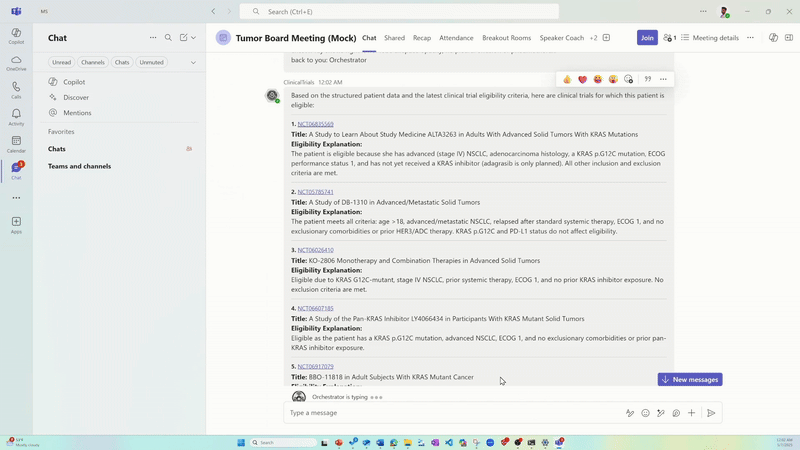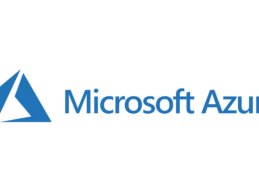What You Should Know:
- Microsoft announced the availability of its healthcare agent orchestrator in the Azure AI Foundry Agent Catalog.
- The platform features pre-configured AI agents, multi-agent orchestration, and open-source customization options, designed to help developers and researchers build sophisticated AI solutions that can coordinate complex, multidisciplinary healthcare workflows, such as those required for cancer tumor boards.
- The initiative aims to
Read More
Microsoft
iCAD to Integrate AI Breast Cancer Detection into Microsoft’s Precision Imaging Network
What You Should Know:
- iCAD, Inc., a global leader in clinically proven AI-powered cancer detection solutions, announced today a strategic collaboration with Microsoft.
- The partnership will integrate a set of iCAD's AI-powered mammography solutions, part of its ProFound Breast Health Suite, into Microsoft’s Precision Imaging Network, significantly expanding access to advanced breast cancer detection tools for clinicians.
Integrating AI Mammography into Leading Radiology
Read More
TetraScience & Microsoft Partner to Advance Scientific AI in Biopharma
What You Should Know:
- TetraScience, a provider of scientific data cloud solutions announced a strategic collaboration with Microsoft to accelerate the adoption of artificial intelligence (AI) in the biopharmaceutical industry.
- The strategic partnership combines TetraScience's Scientific Data and AI Cloud with the power and security of Microsoft Azure, creating a robust platform for scientific organizations to extract valuable insights from their complex experimental
Read More
Microsoft Expands Healthcare AI Capabilities for Healthcare Organizations
What You Should Know:
- Microsoft today announced enhanced Microsoft Cloud for Healthcare AI solutions and capabilities that support healthcare organizations in their journey toward shaping healthier futures.
- In addition to expanded healthcare AI capabilities, Microsoft also shared updates on how customers including Providence, Paige.ai, and Cleveland Clinic are leveraging these capabilities.
Shaping a Healthier Future with AI
The technology streamlines workflows,
Read More
Microsoft, Mass General Brigham & UW Health to Advance GenAI in Medical Imaging
What You Should Know:
- Microsoft has joined forces with renowned academic medical centers – Mass General Brigham and the University of Wisconsin School of Medicine and Public Health (UW School of Medicine) and its affiliated health system, UW Health – to tackle key challenges in radiology and propel the use of generative AI in medical imaging.
- The collaboration between Microsoft, Mass General Brigham, UW School of Medicine, and UW Health represents a significant step forward
Read More
Mercy & Microsoft Form Generative AI Collaboration to Advance Patient Care
What You Should Know:
Microsoft Corp. and Mercy are forging a long-term collaboration using generative AI and other digital technologies to give physicians, advance practice providers and nurses more time to care for patients and improve the patient experience.This work represents what’s next in healthcare for applying advanced digital technologies to the delivery of care to consumers.
Improving the Patient Experience Via Generative AI
“With the latest advances in
Read More
Microsoft and Epic Accelerate Generative AI Integration
Glytec Unveils Real-Time Analytics to Help Hospitals Prepare for New CMS Measures
What You Should Know:
Glytec, the only provider of cloud-based insulin management software across the continuum of care, today announced the next evolution of GlucoMetricsⓇ to provide new analytics, dashboards and data visualizations that give hospitals and health systems new insight into glycemic outcomes. The enhanced visibility this provides is essential as hospitals prepare for new measures from the Centers for Medicare and Medicaid Services (CMS) on severe hypoglycemia and hyperglycemia
Read More
KLAS: Approaches to Moving Epic in the Cloud 2023
What You Should Know:
The benefits of public cloud are promising, as many Amazon Web Services (AWS) and Microsoft customers (both provider organizations and vendors) have noted in previous KLAS research. The first health systems using a public hyperscale cloud provider (e.g., AWS, Google Cloud Platform, Microsoft Azure) to support their EHR environment in the cloud have begun to go live, and interest in this approach is gaining momentum, particularly among Epic organizations. Most who are
Read More
Cognizant to Integrate TriZetto with Microsoft Cloud for Healthcare
What You Should Know:
- Cognizant expands partnership with Microsoft to give healthcare payers and providers easy access to cutting-edge technology solutions, streamlined claims management, and improved interoperability to optimize business operations and deliver better patient and member experiences.
- As part of the expansion, Cognizant and Microsoft will work together to build an integration roadmap between Cognizant's TriZetto healthcare products with Microsoft Cloud for
Read More










